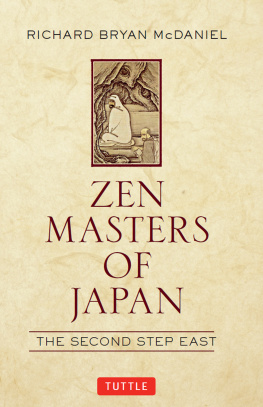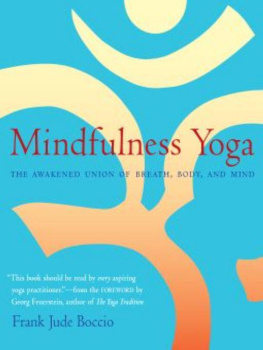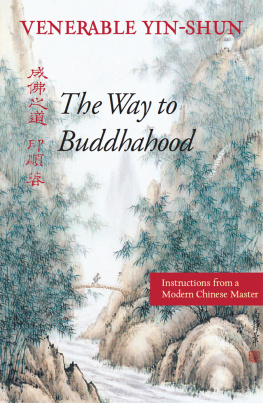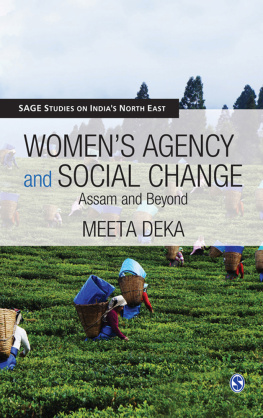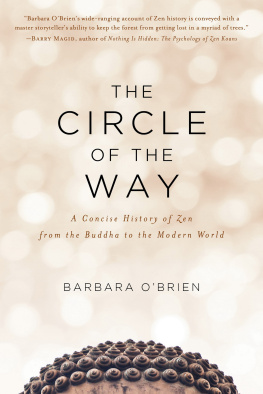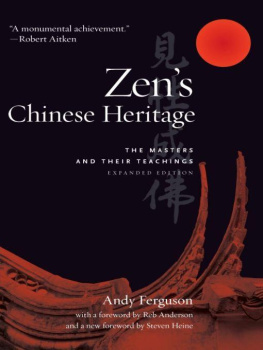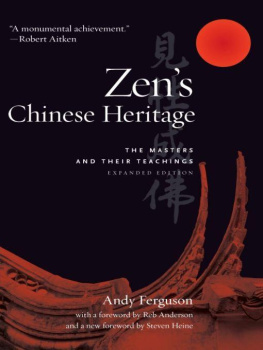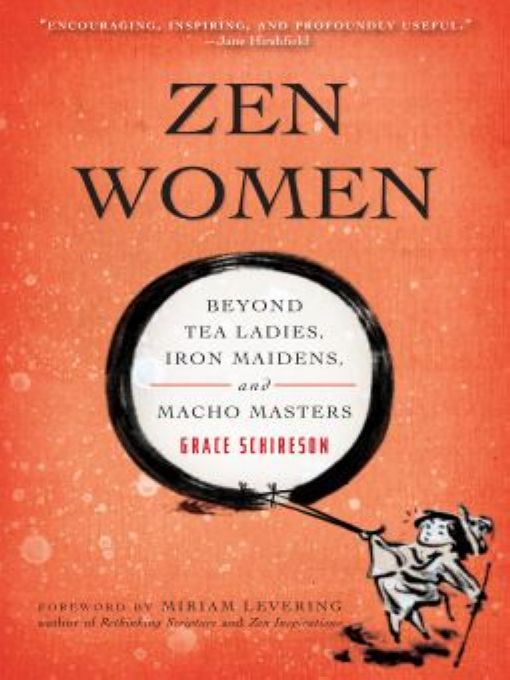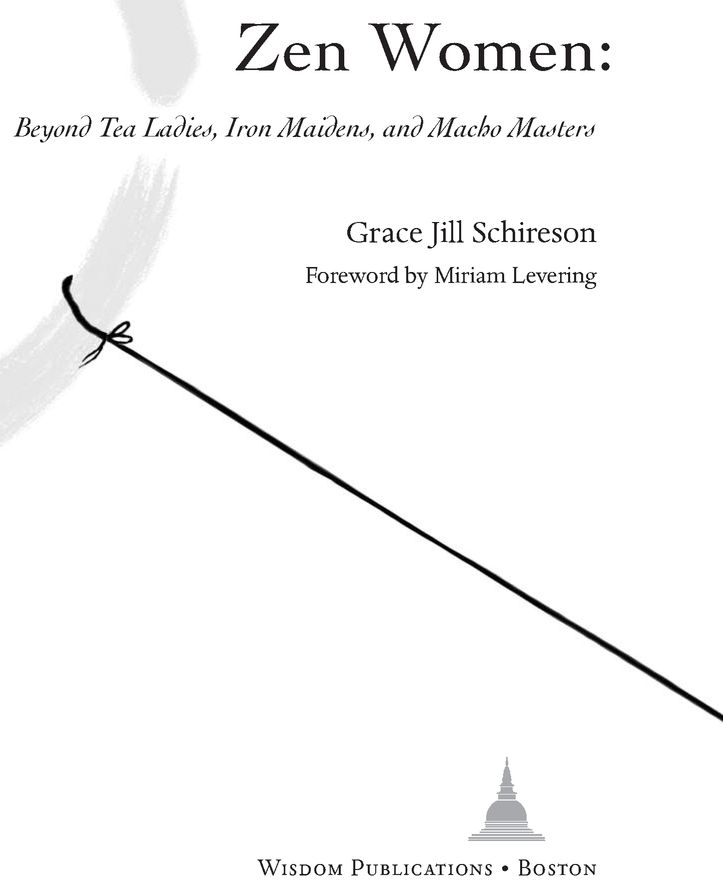Table of Contents
This book is dedicated to the memory of my mother,
Jean Rubin Rosenberg Bernstein,
who gave me her strength,
and to my grandchildren,
Jacob, Isabel, and Olivia Schireson,
who will carry it forward.
Foreword
BY MIRIAM LEVERING
YEARS AGO, after a decade of scholarly work collecting and translating the histories and recorded words of Chinese women Zen masters from Chinas Five Dynasties and Song Dynasty, the golden age of Zen in China, I gave a workshop on the subject at the San Francisco Zen Center. There I met Grace Myoan Schireson, a Ph.D. psychologist with many years of therapeutic experience in Berkeley, California. She was devoting her life to two great endeavors: Zen Buddhist practice and awakening, to which she was and is deeply committed; and finding out everything she could, on her own and from scholars of Buddhist womens history, about Zens women ancestors. Over the course of our long friendship Grace has never wavered from these two commitments, bringing her remarkable energy, focus, and insight to both tasks.
Shortly after the workshop at the San Francisco Zen Center, Grace visited me to learn more about what my work had uncovered. On more than one subsequent visit she brought her inspiring interpretations of this material to my students at the University of Tennessee. Although for years I had studied Zen history as a scholar, conversations with Grace for the first time gave me glimpses of its challenges and depths. In due time my friend Grace received Dharma transmission and took up her true work as a Zen teacher in central California. Her second true work, her energetic commitment to Buddhisms and Zens women ancestors, has also borne fruit in a series of womens Zen retreats, as well as in the extraordinary book you hold in your hands.
You could not find a more useful or more inspiring book on this subject. I look forward to offering this book to my friends and university students. What is exceptionally rich about this book is the way in which Grace brings together her psychological insights into womens motivations and circumstances, most especially the obstacles women face and the ones they create, on the one hand; and on the other hand her own insights from her experience as Zen student and teacher. Both of Graces careers give rise to powerful, moving questionsand answersas she engages here with women ancestors who have found ways to carry out deeply engaged and authentic practice in married life, motherhood, convent life, and as students of male masters. Graces readings of the stories and teachings of women ancestors are of far more than mere historical interest; I believe they are of great value to women practicing Buddhism and other spiritual paths today. All along Grace has held that todays women Zen students and students of Buddhism need as women to connect with and learn from women in their living tradition past and present. In this book Grace Schireson brings women ancestors and their teachings to life, and makes the connection between them and us easy to understand. She enables them to be our teachers right away. In this book you will meet women teachers from many centuries and regions of Asia who will speak to you. Just as valuable, you will meet this books author, herself an extraordinary teacher.
MIRIAM LEVERING is a professor of Religious Studies and Asian Studies at the University of Tennessee, and her current work is a study and translation of the letters of Dahui Zonggao, an important figure in the development and practice of the Zen koan curriculum. She has published numerous articles on early Rinzai Zen in China and women in Chinese Buddhism including the book Zen Inspirations: Essential Meditations and Texts; she is also the author of Rethinking Scripture: Essays from a Comparative Perspective.
Preface
WHEN A MALE TEACHER returned from an early North American conference of Zen teachers, one of his female students asked him, How many women teachers were included in this conference? The male teacher answered, We were all women. A long, confused silence followed.
This interaction brought up the tension between female students questioning the Zen establishment about womens representation, and it also pitted the students insight against the teachers wisdom and authority. Women exchanged glances and silently wondered whether we as women will be empowered to participate fully in Zen or not, and more immediately, whether we can even ask this question and continue to be accepted in a Zen community in which a male teacher can say that we are all women. Do we as women not get it, or does this male teacher not get it? Fifteen years ago the women present looked uncomfortably at one another, perplexed at our bind, but didnt challenge his answer. Today I would cut through that confusion by asking him politely, How many of you women teachers used the ladies room at this Zen conference?
It took twenty of my more than forty years of Zen practice to go beyond being intimidated by that Oneness thing (We are all women), a response that Zen teachers use to wiggle out of the possibility that within Zen there is gender discrimination. Doubtless there is the One. It shows itself as rocks, mountains, and riversand as men and women. Or, as stated in the Zen literature, To understand that all is one is not enough. The One reveals itself through myriad unique formationseven men and women. Why was it so difficult to talk about women and their place in Zen?
My own questioning arose as a request for more information, not a complaint about unfairness. But no matter how carefully I posed the question about women and Zens history, my questions still somehow challenged my teachers personal authority and the teachings of Buddhism. If there were mistakes such as gender discrimination in the formation of the Buddhist institution, or if there were flaws in the Buddhism our teachers had received from their teachers, what then was the basis of their teaching authority? Understanding how volatile the questioning was becoming, I felt I had to change the course of the inquiry if I wanted to stay in the Zen community. I also felt that in order to pursue this topic I needed to make sure that I was not caught by my own self-clinging as a female Zen person. It was essential that I move beyond my personal wound, my sorrow and anger about a long history of neglect and, even worse, a purposeful elimination of women from Zens history.
My purpose shifted. I stopped questioning what had gone wrong with Buddhism and why women Zen teachers had been excluded from the historical record; instead I began to see my function, in this current generation of Zen teachers, to be creating a conduit for these womens past practices to honor them and bring them forward. I wanted to collect the teachings from our Zen grandmothers and carry them to our Zen grand-daughtersthe women who were still on their way to entering Zen practice. I wanted to find my own practice as a twentieth-century Western woman. And I wanted to help contemporary Zen practice find its way to a more balanced perspective.
By moving beyond an idealization of Zen I have developed a more mature love of, and responsibility for, Zen practice. I have moved beyond the question of why and how female Zen ancestors had been erased from Zens history. I have sought to identify these erased women and put them back in the Zen practice I loved. I believed that their story, once told, would validate their life work and at the same time correct the mistaken tendencies that had silenced their voice. And I believed that they could help me find my own voice. I was not surprised to learn that other women also longed to hear about these female Zen ancestors.


